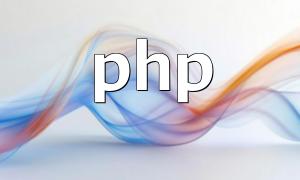PHP remains one of the most widely-used server-side scripting languages, thanks to its simplicity, flexibility, and strong community support. With the release of PHP 8, the language has taken a major leap forward, introducing both structural improvements and powerful new features. This article dives deep into the core changes and enhancements in PHP 8, offering hands-on examples to help developers fully leverage its potential.
The introduction of the Just-in-Time (JIT) compiler in PHP 8 is one of its most significant performance upgrades. JIT compiles PHP code at runtime, boosting execution speed — particularly in CPU-intensive operations. Here's a basic example:
<?php
// Code before PHP 8
function sum($a, $b) {
return $a + $b;
}
echo sum(3, 4);
// Improved code in PHP 8 with type declarations
function sum(int $a, int $b): int {
return $a + $b;
}
echo sum(3, 4);
?>
Using type declarations improves both performance and code clarity, and it also helps the JIT engine optimize execution.
PHP 8 introduces union types, allowing functions to accept multiple data types for parameters or return values. This increases the flexibility and expressiveness of the language's type system.
<?php
// Code before PHP 8
function checkNumber($num) {
if (is_numeric($num)) {
return true;
} else {
return false;
}
}
echo checkNumber(5);
// PHP 8 using union types
function checkNumber(int|float $num): bool {
if (is_numeric($num)) {
return true;
} else {
return false;
}
}
echo checkNumber(5);
?>
Using int|float for parameters clearly communicates that the function accepts either type, improving maintainability and readability.
PHP 8 brings a more robust error handling system, introducing new exception classes and allowing for more granular control over error types. Here's an example:
<?php
// Error handling before PHP 8
try {
$file = fopen('file.txt', 'r');
if (!$file) {
throw new Exception('Unable to open file');
}
} catch (Exception $e) {
echo 'Caught exception: ' . $e->getMessage();
}
// Improved PHP 8 error handling (assuming FileException class is defined)
try {
$file = fopen('file.txt', 'r');
if (!$file) {
throw new FileException('Unable to open file');
}
} catch (FileException $e) {
echo 'Caught file exception: ' . $e->getMessage();
}
?>
With custom exceptions, developers can handle different types of errors more precisely, resulting in cleaner and more robust code.
PHP 8 represents a significant milestone in the evolution of the language. With features like the JIT compiler, union types, and refined error handling, it empowers developers to write faster, cleaner, and more maintainable code. These improvements are not only beneficial for new projects but also provide a solid foundation for refactoring legacy systems.
That said, developers should carefully review their codebases for deprecated syntax or incompatibilities before upgrading. PHP 8 also offers static analysis tools that help identify potential issues and optimize code for better performance and readability.










